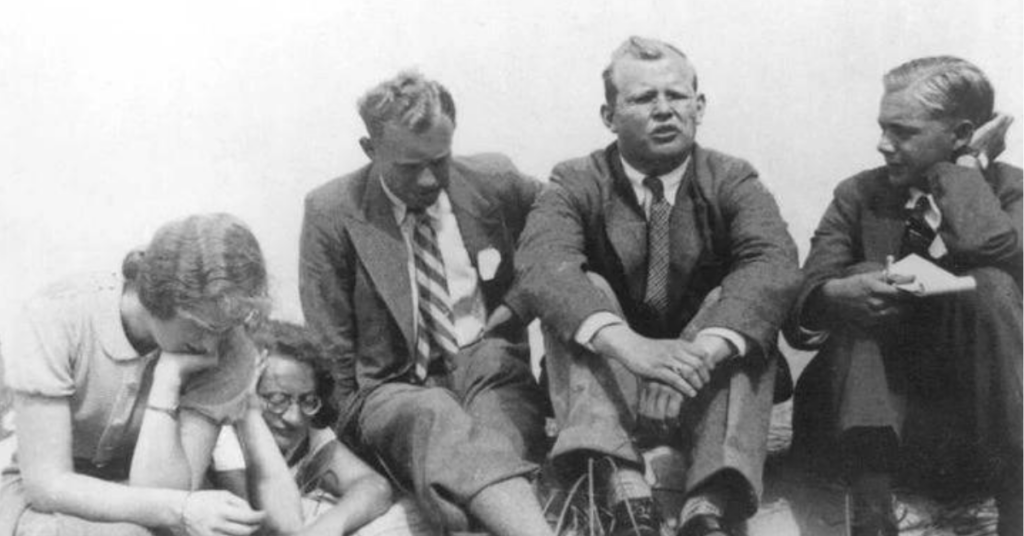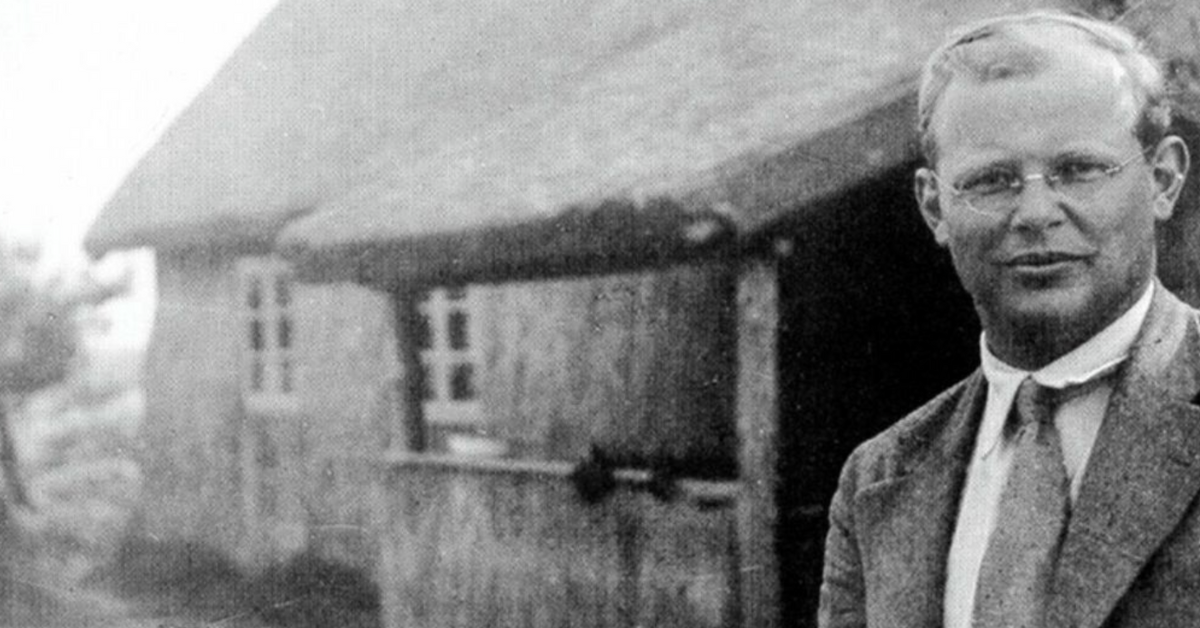In a recent episode of the Pivot Podcast, hosts Dwight Zscheile and Katie Langston were joined by Dr. Tripp Fuller to discuss the life and theology of Dietrich Bonhoeffer. As a German pastor and theologian who courageously resisted the Nazi regime, Bonhoeffer’s insights remain profoundly relevant for church leaders navigating the challenges of discipleship and witness in a time of upheaval.
Using Bonhoeffer as a guide, here are three key ways we are called to deepen our discipleship in times such as these.
Step Outside Your Assumptions
First, Tripp highlighted how Bonhoeffer’s experiences engaging with different cultures and communities, such as his time serving German churches in other countries and his encounter with the Black church in New York City, shaped his understanding of the gospel. When he experienced the Spirit of God in different contexts, “all of a sudden it became real as opposed to just ideas,” Tripp said.
Bonhoeffer also recognized the importance of critically examining the assumptions and influences of his cultural context on the church. Tripp explained that when we think about what a thriving church looks like, we often rely on models from the past without questioning whether those models might be problematic or shaped by cultural assumptions that are no longer valid.
If we don’t critically examine our assumptions about what a successful church looks like, we risk simply trying to recreate a past era rather than faithfully responding to the unique challenges and opportunities of our own time. But what if God is calling us into something new or different? What if faithfulness in the present moment doesn’t look exactly like it did before?
Speak Boldly and Prophetically
As the Nazi regime tightened its grip on Germany, Bonhoeffer became increasingly convinced that the church needed to speak out boldly against the evils of racism, nationalism, and tyranny—even when doing so was dangerous and unpopular. “Bonhoeffer realized that in times of great injustice, the church cannot remain silent or politically neutral,” Tripp explained. “He believed that the gospel compels us to stand in solidarity with the oppressed and to speak prophetically against the powers of evil, even at great personal cost.”
This conviction led Bonhoeffer to openly criticize the Nazi regime and its supporters, even as many of his fellow church leaders accommodated themselves to the new political reality. He paid a high price for his prophetic witness, ultimately giving his life in a concentration camp. Yet his example continues to inspire and challenge us today, reminding us that faithful discipleship often requires us to speak uncomfortable truths and to take costly stands for justice and righteousness.
As Tripp put it, “Bonhoeffer invites us to take seriously our discipleship precisely by knowing the asking, what is the next faithful step without having to have the ten-year plan.” In a cultural moment marked by division, injustice, and polarization, Bonhoeffer’s legacy calls the church to courageously bear witness to the truth of the gospel, even when it is costly or unpopular to do so.
Find Deep, Faithful Friends
One of the most striking aspects of Bonhoeffer’s legacy is his emphasis on the importance of deep, committed relationships for faithful Christian witness. In his underground seminary, Bonhoeffer intentionally fostered a tight-knit community of students. Tripp described how “part of his goal was, ‘We want our students to graduate where there’s clarity about our convictions, but also a deep group of friends…you’re not going to serve the German state and the unexamined allegiances of your congregation, you’re going to serve Christ.'”

Bonhoeffer recognized that in the face of immense pressure and opposition, disciples of Jesus need more than just individual conviction—they need the support, encouragement, and accountability of a community that shares their commitment. According to Tripp, “If you’re going to have integrity in a culture, once you’ve recognized how much of it has this kind of demonic energy…It requires these kinds of deep friendships.”
This insight is particularly relevant for church leaders today, as political polarization and cultural divisions strain relationships and threaten to fracture communities. By prioritizing the formation of deep, committed friendships united around a shared vision of discipleship, church leaders can help their congregations weather the storms of cultural change and bear witness to the reconciling love of Christ.
As we seek to navigate the challenges of discipleship in our own contexts, Bonhoeffer’s enduring wisdom offers a compelling vision of faithful Christian witness nurtured by committed relationships and grounded in the reconciling love of Christ.



